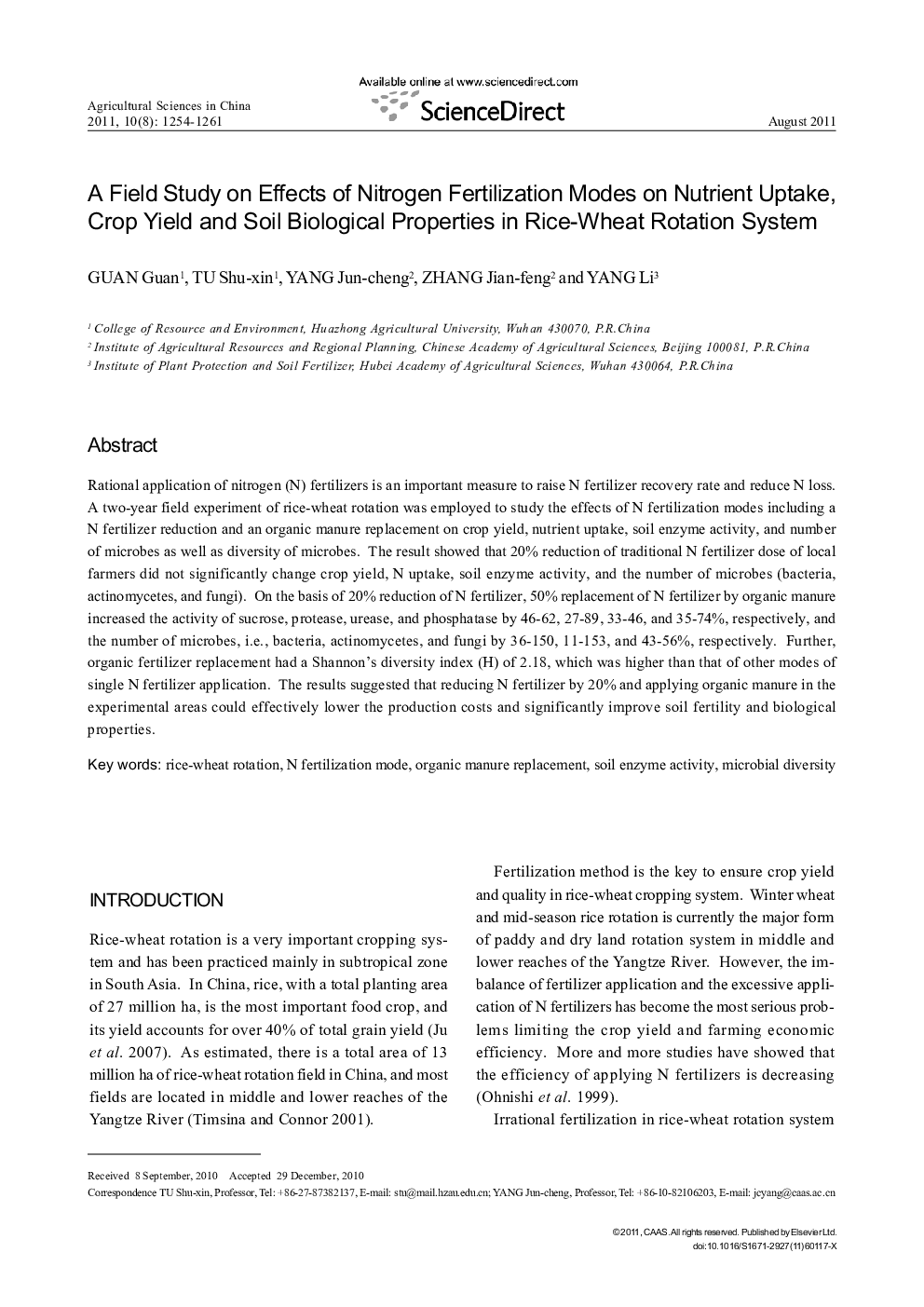| Article ID | Journal | Published Year | Pages | File Type |
|---|---|---|---|---|
| 4489970 | Agricultural Sciences in China | 2011 | 8 Pages |
Rational application of nitrogen (N) fertilizers is an important measure to raise N fertilizer recovery rate and reduce N loss. A two-year field experiment of rice-wheat rotation was employed to study the effects of N fertilization modes including a N fertilizer reduction and an organic manure replacement on crop yield, nutrient uptake, soil enzyme activity, and number of microbes as well as diversity of microbes. The result showed that 20% reduction of traditional N fertilizer dose of local farmers did not significantly change crop yield, N uptake, soil enzyme activity, and the number of microbes (bacteria, actinomycetes, and fungi). On the basis of 20% reduction of N fertilizer, 50% replacement of N fertilizer by organic manure increased the activity of sucrose, protease, urease, and phosphatase by 46-62, 27-89, 33-46, and 35-74%, respectively, and the number of microbes, i.e., bacteria, actinomycetes, and fungi by 36-150, 11-153, and 43-56%, respectively. Further, organic fertilizer replacement had a Shannon's diversity index (H) of 2.18, which was higher than that of other modes of single N fertilizer application. The results suggested that reducing N fertilizer by 20% and applying organic manure in the experimental areas could effectively lower the production costs and significantly improve soil fertility and biological properties.
